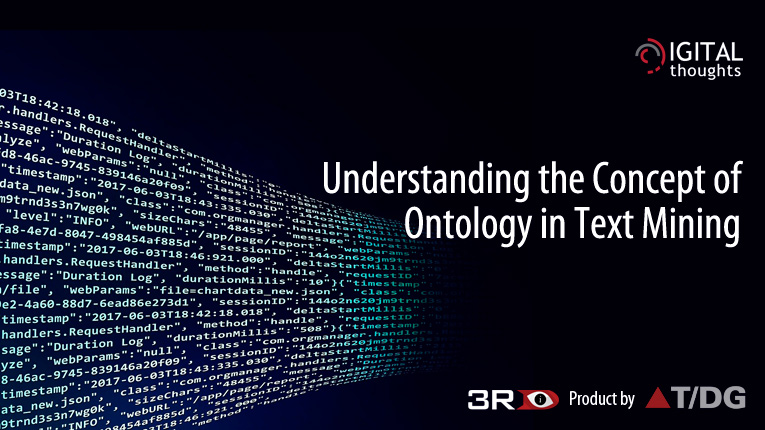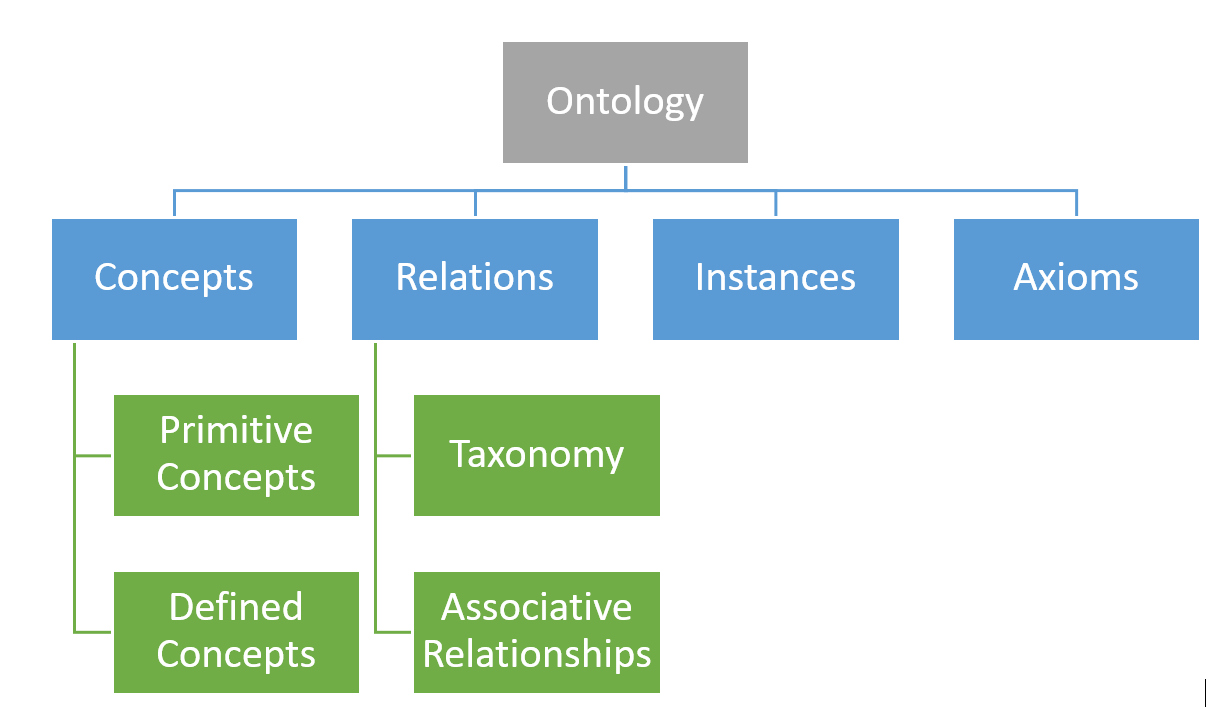Understanding the Concept of Ontology in Text Mining

End users must make complex database search requests to retrieve information due to the huge increase in the use of knowledge discovery apps. Users of this type are expected to understand not just the structural complexity of complex databases, but also the semantics-based links between the data stored in them. Scholars have been focused on knowledge discovery and interactive query generation through the concept of ontology to tackle these challenges, with special focus on enhancing the interface between data and search requests to bring result sets closer to the needs of the researchers.

Ontology is a working model of entities and interactions in data mining, and it can be defined broadly or in a specific subject of knowledge or practise, such as healthcare or academia. An ontology can take many different shapes, but it will always involve a lexicon of terms and some explanation of their significance. This comprises definitions and an explanation of how concepts are associated, which together impose a framework on the domain and limit the terminology that can be interpreted. The idea is to develop a shared vocabulary and conceptual framework for transferring data in that subject.
Text mining has made ontologies a sought-after topic, as they serve as clear conceptual knowledge models that make domain knowledge accessible to data systems. They are crucial to the Semantic Web's vision, as they provide the semantics language that is used to tag websites in a way that is understandable by machines. Ontologies, as researched in the context of information analysis, take inspiration from disciplines such as symbolic representation of knowledge in AI, formal logic and machine learning in software engineering, and conceptual modelling in software engineering, while also incorporating Web-enabling functionalities.
Components of Ontology

The key components of an ontology are concepts, relations, instances and axioms.
1] Concept
A concept is represented by a set or class of entities within a domain.
Example: Mathematics is a concept under the domain of education but Trigonometry is a concept if the domain is Mathematics.
There are 2 types of Concepts.
a] Primitive concepts
Concepts that only have necessary conditions for being categorized under a class.
Example: A bird is an organism with wings, so all birds must have wings, but there could be other organisms that have wings but that are not birds.
b] Defined Concepts
Defined concepts are defined as concepts where the description is both necessary and sufficient for an entity to be categorized under a class.
Example: The polygon is a geometrical figure with multiple sides. Not only does every polygon have multiple sides, but also every geometrical figure with multiple sides is a polygon.
2] Relations
Relations are used to describe the interactions between concepts or the properties of a concept. They can be further classified under 2 types:
a] Taxonomy
A taxonomy organises concepts into sub-concept or super-concept tree structures.
Example: A square is a polygon which in turn is a two-dimensional geometrical structure.
b] Associative Relationships
An associative relationship relates concepts across tree structures.
Example: A kitchen is located within a house.
3] Instances
Instances are the real-world examples that are represented by a concept. Associated instances, when combined with an ontology, is defined as a knowledge base.
Example: Trigonometry is an instance of the concept of ‘Mathematics’. (however, some people argue that Trigonometry can be a concept in itself)
4] Axioms
Axioms are a set of rules used to restrict values for classes or instances. Axioms can also include rules that are more generalized.
Example: Organisms that can survive on both land and water can be defined as amphibians.
Today, we have powerful new age text mining platforms like 3RDi Search that use the concept of ontology and semantics for advanced text mining and analysis. If you’re looking for a powerful text mining platform powered by ontology, visit www.3rdisearch.com or drop us an email at info@3rdisearch.com and our team will get in touch with you.
